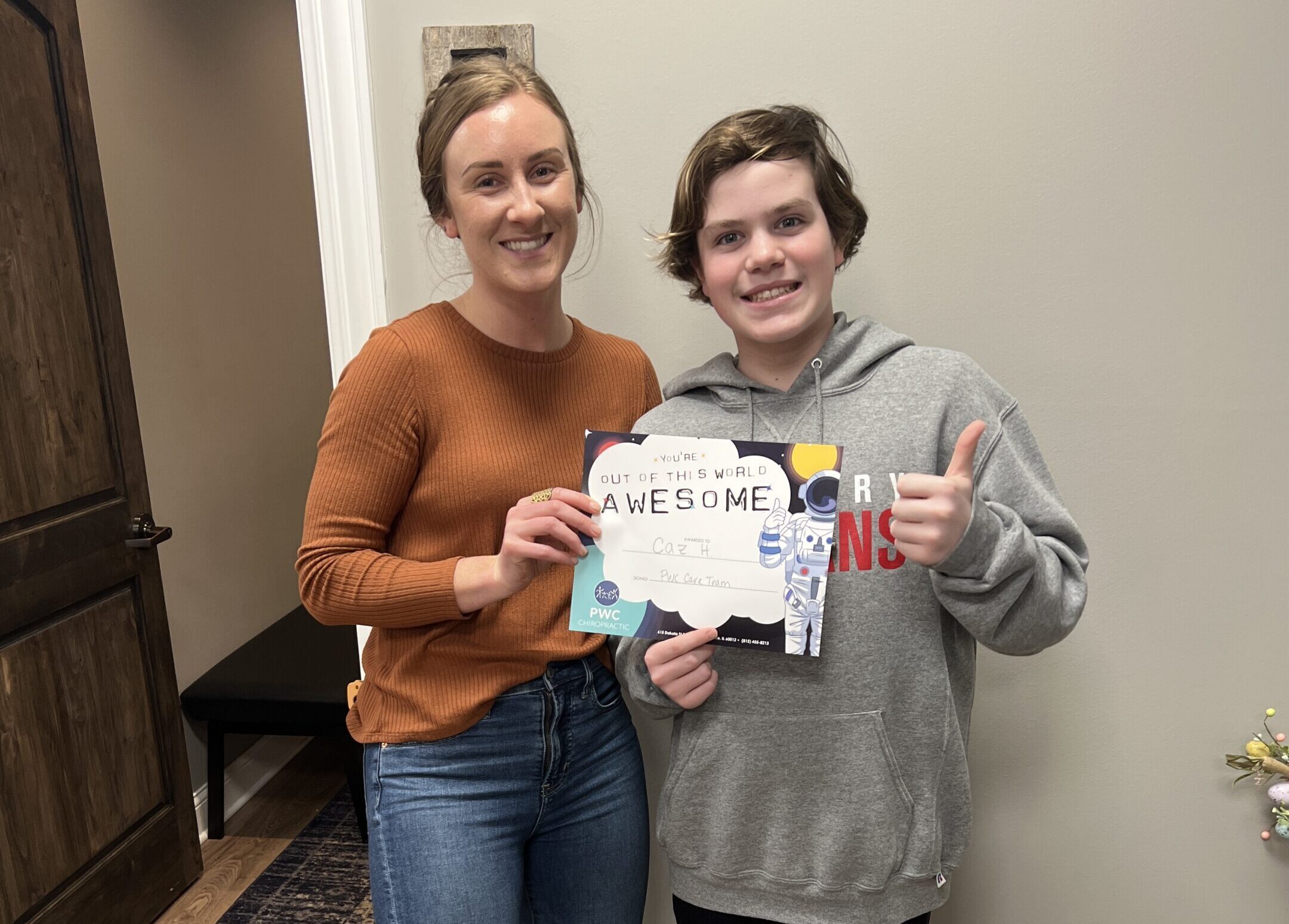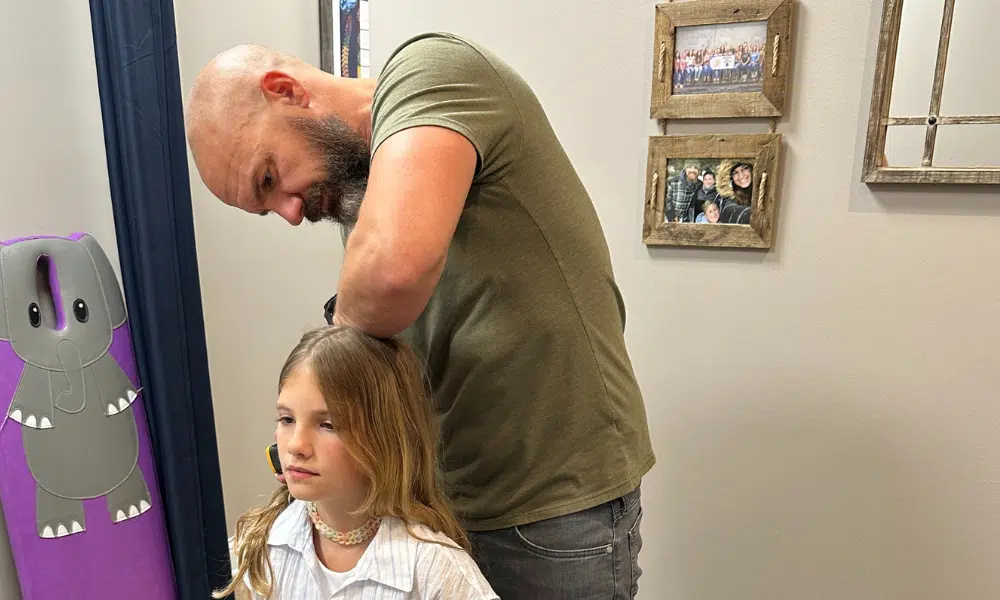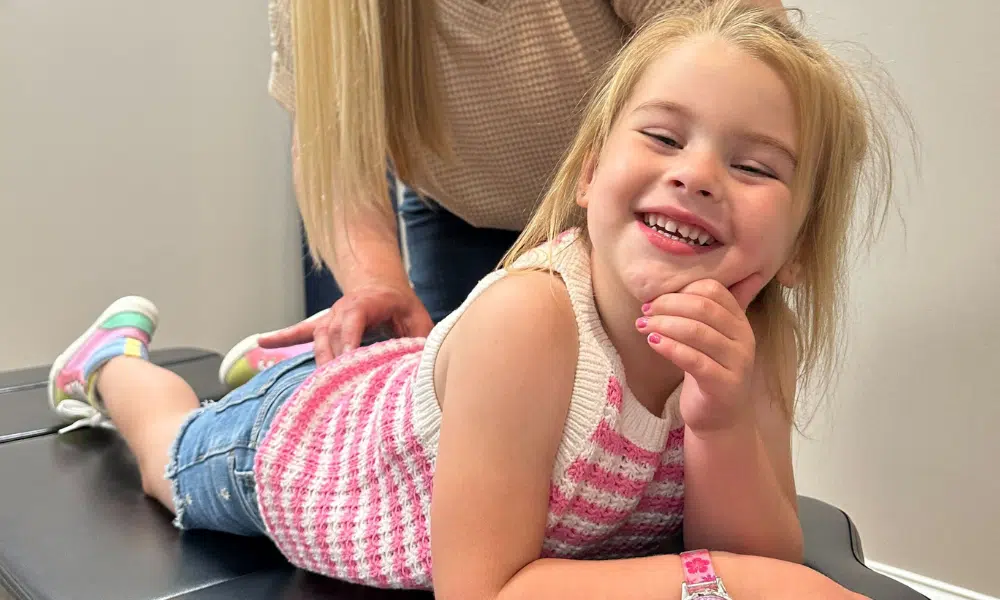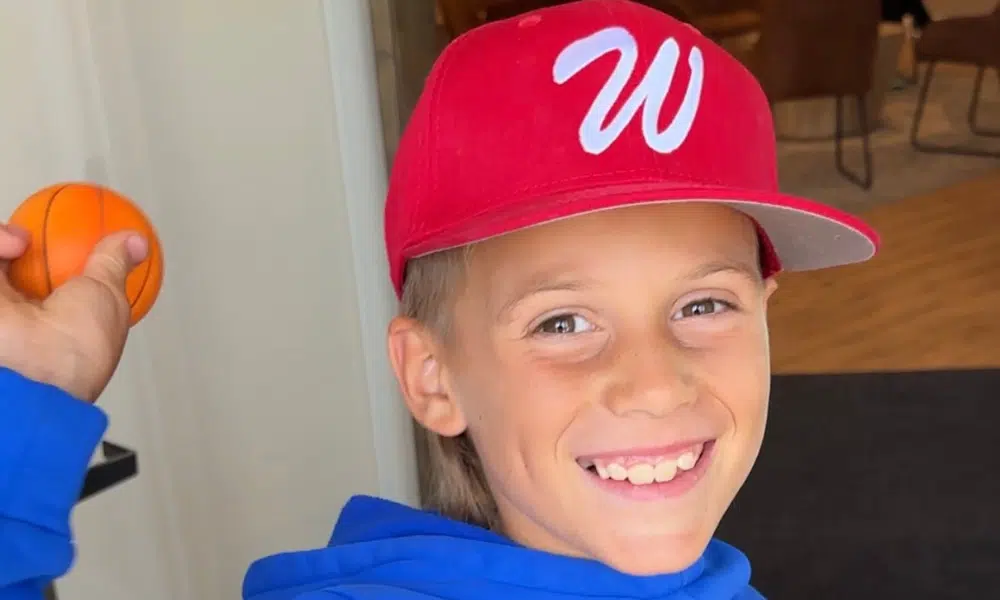Looking back at Emma’s case history now, it’s easy to see where the stress and tension first started to build. But while her parents certainly had experienced episodes of respiratory illnesses and some sensory or emotional challenges in the past, they had never been a daily occurrence. Functional Neurological Disorder was not even on their radar.
However, as time went on and the mental and emotional stress Emma was facing at school and home with her sister mounted, the symptoms started to appear more and more in her physical motor system. First, it showed up as constant tension and tightness in her legs and lower back. Then the tension turned into twitching, spasms, and shaking.
Eventually, her ability to perform simple gross motor tasks like standing and walking was severely compromised, and she was constantly in pain. The pain, tension, and spasms in her physical body then aggravated the mental, emotional, and social challenges. And fast forward just a few short years, Emma and her family found themselves having to see a multitude of different doctors, physical therapists, psychiatrists, and so forth.
When we met Emma she was on a whopping 13 different medications and struggling more than ever. Nothing was helping, and she was only progressively getting worse.
Emma’s case is a classic presentation of Functional Neurological Disorder known as FND, a difficult and expensive condition to care for. If your child has been dealing with such frustrating symptoms or if you’ve been able to identify their FND, this article will go over everything you need to know about the disorder, along with the best resources and strategies for recovery.
What is Functional Neurological Disorder?
Functional neurological disorder is a broad term used to describe nervous system symptoms related to motor or sensory functions that can’t be explained by another existing neurological disease or disorder. Such symptoms include abnormal movements or sensations, like tremors, shaking, sudden weakness, or other recurring spells that are unrelated to an injury or other condition.
Previously referred to as conversion disorder (especially regarding children), this condition is a very real and especially frustrating issue that can cause serious distress and dysfunction, disrupting your child’s everyday life and happiness when left unidentified.
These symptoms occur when there is some kind of miscommunication between the nervous system (neurological) and the body. Because of the ambiguity of the condition, it can be overwhelming for both parents and children to cope with the physical consequences of the neurological disconnect that is out of their control.
It’s relatively normal for kids to be stressed and upset when FND interferes with their typical activities, like missing school, getting in the way of their social life, or hobbies they’ve dedicated their time to. It’s also common for children to develop other physical or emotional conditions, such as depression, especially when FND symptoms are neglected.
It’s important to remember that FND isn’t something a child fakes or voluntarily contributes to; the disorder can be difficult to actualize, but it should be taken seriously by your doctors. The right specialists will be there to support you and your child while exploring different relief solutions.
What Are the Causes of Functional Neurological Disorder?
Discovering FND in children can be a bit tricky; it isn’t always clear what is happening, especially because a lot of kids with FND are often high functioning. Studies show that FND is commonly diagnosed in girls from 10-14 years of age who tend to have a perfectionist mindset. Such children are often involved in intense physical activities like athletics or other competitive sports teams. However, the cause of FND can greatly vary for both adults and children.
The particularly difficult part of FND is the fact that there isn’t a clear or singular underlying cause of FND, according to most doctors. The abnormality of brain function isn’t due to any obvious structural damage to the brain—the problem often won’t even show up on a typical structural MRI brain scan (though functional MRI scans are making some headway).
Instead, the problem lies with signals in the brain being unable to communicate properly, which can be hard to measure with traditional medical testing (blood work, MRI, CT, EEG, etc.). FND is an indicator that there is some kind of disconnection in the central and autonomic nervous system, leading to disruption of communication between the brain and the body.
One thing our PX Docs have continually noted is that most FND cases have a significant amount of trauma and illness in their early childhood case history. Things like a stressful pregnancy, birth intervention and trauma (forceps, vacuum, c-section, etc.), infantile colic and reflux, chronic ear infections and respiratory issues, as well as things like social, emotional, and family trauma, may all contribute to the “buildup” of stress and eventually the onset of Functional Neurological Disorder.
However, FND is not identified in a child just because of stress or because they have a mental health diagnosis. FND still requires a functional neurological examination, looking at both neuromuscular and motor function through things like EMG, and for the presence of dysautonomia through things like NeuroThermal testing and Heart Rate Variability.
Our PX Docs measure all 3 of those elements through one simple, functional neurological exam that takes only 15-30 minutes, called the INSiGHT Scans.
FND is all about dysfunction in the nervous system, which is what PX Docs specializes in restoring. Many neurological issues can be brought back to a single problem: subluxation.
What is subluxation? Subluxation is when tension and fixation accumulate within the central nervous system, and leads to interference and incoordination within the function of the nerves, muscles, and autonomic nervous system as a whole.
What Are The Symptoms of FND?
There are a variety of symptoms of FND, which contributes to why it’s so difficult for doctors to pin down. Because FND acts as a catch-all for many undefinable neurological conditions, there can be any number of outward indicators. Generally, you can break symptoms into two categories: psychogenic nonepileptic seizures and functional movement disorder. The symptoms of both groups can overlap, too—FND is known for its polysymptomatic nature. Sometimes these symptoms happen for a short period, while other times the symptoms last for years.
Here is a list of some of the most common symptoms that may help you recognize possible FND in your child.
Common motor issues:
- Limb weakness or paralysis
- Involuntary twitching or jerking
- Issues with gait or posture
- Loss of balance or difficulty walking
- Muscle stiffness
- Tics
- Trouble coordinating movements
- Tremors, spasms
Common brain or sensory issues:
- Loss of voice, slurred or stuttered speech
- Memory issues, thinking problems, cognitive difficulties involving memory and concentration
- Headaches, migraines
- Loss of sense of smell
- Chronic pain
- Loss of sense of touch
- Loss of hearing
- Numbness, tingling in limbs, body, or face
- Seizure-like episodes, blackout, and fainting (different from epileptic seizures because they are due to brain dysfunction and not abnormal electrical signaling in the brain)
- Disassociation from thoughts, feelings, or environments during seizures
- Sleeping problems
- Overactive bladder or other bowel issues
- Hallucinations
- Difficulty swallowing or feeling “a lump in the throat
- Loss of vision, double vision, sensitivity to light, and blindness
There are more symptoms FND patients may experience, especially in the area of ‘basic’ neurophysiological functions such as digestive motility, immune function, and sleep.
How can My Child Begin their Functional Neurological Disorder Recovery?
In the typical medical community, there are several ways to help with FND recovery. Some common therapies and remedies include the following:
- Psychotherapy: For cases where children with FND have suffered a stressful or traumatic event or perhaps have an underlying mental health condition that affects their neurological function, psychotherapists, psychologists, or cognitive behavior therapists can be helpful.
- Physical therapy: Since motor problems are a primary issue with FND, many people use physical therapy to retrain the brain and treat symptoms like impaired movement, muscle weakness, or pain.
- Medication: Especially when an underlying mental health concern is suspected, some doctors use antianxiety drugs or antidepressants to fend off FND symptoms.
- Lifestyle changes: Some doctors recommend adjusting the ways children manage and cope with their stress and or mental health, such as practicing yoga, meditation, or progressive muscle relaxation. Some people even use music for FND relief. You can also try treating the symptoms by optimizing the rest of your health, like eating a balanced diet, getting enough sleep, and striving for positive relationships. Note, though, that this isn’t usually a long-term solution for the underlying issues.
For some children, FND symptoms are reversible, but even in these cases, recovery usually won’t happen quickly. It can take time to find the right recovery solution, and implementing that solution takes time, too. Retraining the brain and correcting abnormal or unintentional movements has to happen over time.
A more typical recovery route also often involves multiple specialists or disciplines, meaning there could easily be some psychological work and physical therapy to get back to normal function. If your child is only suffering from movement issues, physical therapy may be enough, but it’s fairly typical to need some type of cognitive therapy as well.
A Better, More Direct Option
While psychotherapy and physical therapy are truly incredible options to help a child struggling with health challenges in both the mental, emotional and physical, motor side of health – there is one thing that ties both of those things together, functional neurology.
Our network of trained and ready PX Docs are literal experts in just that, the function of the nervous system. Our PX Docs put far more emphasis on discovering the root cause rather than only curbing the symptoms of FND. Functional neurological disorder recovery is a top concern in the pediatric chiropractor community. Instead of relying on medication or a dozen different doctors, our chiropractors go right to the source.
If subluxation and dysautonomia are at play for your child, then those must be addressed above all else. Helping parents to understand the role that the Vagus Nerve and central nervous system play in overall well-being, both mental and physical, is crucial to really help them get the answers and action steps they seek.
As the #1 hidden secret to your child’s health and healing potential, PX Docs understand the vagus nerve and the duress it faces due to stress, trauma, tension, inflammation, and other attacks on the CNS.
For Emma, whose story kicked off this article, neurologically-focused pediatric chiropractic care absolutely was the missing link and action step they’d long been looking for! It was a long and winding road to get Emma better, starting first with her physical body and neuromuscular system and then working on the social and emotional aspects.
But we’re happy to report that Emma’s quality of life is the best it’s been in many years, and she is off well over half of the medications she was on when first starting chiropractic care through the Perfect Storm Neurological Intensive Program at PWC Chiropractic, the leading center for the PX Docs Network!
Ready For Relief?
To find out if a local PX Doctor can help your child with Functional Neurological Disorder, the first step is to book an appointment for an in-depth consultation, neurological examination, and report of findings. Having a PX Doc take your child through their incredible 5-Step Clinical Process is so often the missing link for parents who’ve tried it all and exhausted the typical medical and therapeutic approaches to helping their child FND.
Functional Neurological Disorder recovery can be a lonely road without the right support, but PX Docs are here to listen to your concerns and use our unique skills and resources to help your child. Visit our directory to find a pediatric chiropractor near you!





